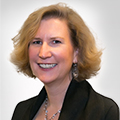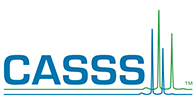
Lately I have had several conversations with members that touched on variations of a common theme: how to combat the knowledge drain in our field as senior leaders retire and leave the workforce.
Millennials (born between 1981 and 1996) account for over a third of all US workers. They became the largest generation in the nation’s workforce back in 2016 and will represent 75% of the global workforce by 2025. Generation X (born between 1965 to 1980) is the next largest group at 33%. Baby Boomers (born 1946 - 1964) come in 3rd at 25%, but they are rapidly leaving the workforce for retirement. The pandemic shifted nearly everyone's priorities and views on work. For many boomers that has meant moving their retirement dates up to spend more time on the things they enjoy. While some may consult, in one recent survey more than half said they aren't thinking of going back to a traditional role.
CASSS is also experiencing this broader trend. Our members fall largely in the Baby Boomer and Gen X cohorts. As my recent conversations reveal, many of you are grappling with this in your organizations. Knowledge Sharing is at the core of CASSS’ mission. Thus, I have been reflecting on how CASSS can be part of the solution within the field, and I believe there are at least two ways CASSS can lead. One is to share my experiences and encourage sharing of best practices among members. The other is to ensure CASSS is actively engaging young professionals in our communities and volunteer ranks.
Recently I read an article titled, "4 Ways to Help Different Generations Share Wisdom at Work" by Chip Conley in the Harvard Business Review. Here are a few suggestions you might consider introducing in your workplace.
Many of you likely have mentoring and peer coaching opportunities within your companies. Do those programs expressly encourage mutual mentoring that builds bridges between generations? If not, why not suggest adding it? Provide mentoring matches where a seasoned leader learns from a Millennial or Gen Z-er about one topic and they learn from the elder a different one. This accelerates wisdom sharing across an organization.
As a senior leader, are you utilizing the quiet, informal leaders in your groups? Ask your team members, “Who in the company – outside of your direct boss or a team member – do you look to for helpful advice?” or “Who in the company is a role model for wisdom?” Once you’ve identified these internal counselors, you can start determining how to leverage their wisdom.
What is working – through both formal and informal channels – in your company to facilitate transfer of knowledge across generations? I invite you to share with our community in our LinkedIn Group.
Among our conference communities we can certainly do more to attract young professionals – and provide a welcoming environment when they do participate. As you probably know from your own teams at work, providing opportunities to contribute their innovative ideas and diverse perspectives while networking and learning from more seasoned members is the key to engaging younger professionals. As we emerge from the pandemic and return to in-person conferences, I challenge our scientific program committees to be creative and flexible in bringing younger professionals into the fold. Young scientist sessions are a great start – but that also sets them apart and may send the message that they are not taken as seriously. Young professionals often come to the table with bright ideas, passion, determination, and an ability to think outside the box and experiment in unprecedented ways. What might we achieve by bringing this energy to the conference planning process? If you are interested in ways associations can engage young professionals, read more in this article by Sidecar.
Please share your thoughts and suggestions on any of the ideas above. Creating a welcoming environment for young professionals will help grow our community - and it has benefits for everyone. Sharing wisdom across generations will have a lasting impact. No one has all the answers, but together we will help plug the knowledge drain.

